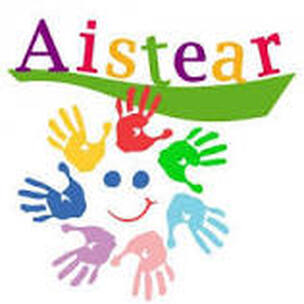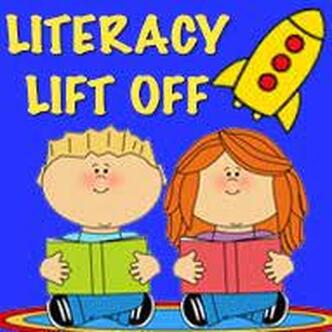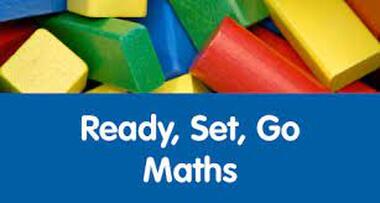Infant Programmes in Scoil Chaitríona
Aistear is the early childhood curriculum framework for all children from birth to six years. The word Aistear is the Irish word for journey and was chosen because early childhood marks the beginning of children’s lifelong learning journeys.
Aistear is the key learning and teaching tool used to implement the primary school curriculum in infant classes in Scoil Chaitríona. The children play for an hour 3-5 days a week, with an emphasis on active learning and oral language development. Curriculum subjects covered during Aistear include: S.E.S.E., S.P.H.E., oral language, reading, writing, maths, art, music and drama.
During the Aistear hour, the children are implementing their numeracy and literacy skills in a more meaningful way through the use of role play, games and real-life situations.
Aistear is the key learning and teaching tool used to implement the primary school curriculum in infant classes in Scoil Chaitríona. The children play for an hour 3-5 days a week, with an emphasis on active learning and oral language development. Curriculum subjects covered during Aistear include: S.E.S.E., S.P.H.E., oral language, reading, writing, maths, art, music and drama.
During the Aistear hour, the children are implementing their numeracy and literacy skills in a more meaningful way through the use of role play, games and real-life situations.
Time for Sounds
This programme is used in the infant class to develop phonological awareness skills, which are the building blocks to learning letter sounds and create a sound foundation of early literacy skills. It is implemented over 8 weeks early in the first term of infants and repeated with a differentiated approach in senior infants.
The sessions are intended for use with groups of six to eight children and are presented in 30– 45 minute sessions with frequent changes of activity embedded within each session. The activities and group sizes may be adapted – for example, the activities may be used with one child on an individual basis, or with the whole class. Focus areas include:
The sound awareness programme mirrors the development of phonological awareness skills in children, developing phonological awareness skills by explicitly raising awareness of the sound properties of words, beginning with larger units of sound, and moving to the smaller component sounds of words.
When individual elements of listening are identified, demonstrated, rehearsed and supported by visual cues, it is much more likely that children will achieve success in this area.
The sessions are intended for use with groups of six to eight children and are presented in 30– 45 minute sessions with frequent changes of activity embedded within each session. The activities and group sizes may be adapted – for example, the activities may be used with one child on an individual basis, or with the whole class. Focus areas include:
- Syllable segmentation and blending
- Rhyme generation
- Identification of phonemes
- Onset and rime
The sound awareness programme mirrors the development of phonological awareness skills in children, developing phonological awareness skills by explicitly raising awareness of the sound properties of words, beginning with larger units of sound, and moving to the smaller component sounds of words.
When individual elements of listening are identified, demonstrated, rehearsed and supported by visual cues, it is much more likely that children will achieve success in this area.
Speaking and Listening
The Speaking and Listening through Narrative programme mirrors the development of narrative skills in children – from raising their awareness of the individual components of a simple story to retelling and then generating their own ideas for stories. The programme is divided into individual chapters focusing on each story component (‘Who’, ‘Where’, ‘When’, ‘What Happened Next’ and ‘The End’).. The sessions are primarily intended for use with groups of around six to eight children and are presented over an eight week period beginning after Christmas.
The Speaking and Listening through Narrative program, facilitates the development of children’s narrative skills through structured sessions focused on different story components, resulting in improved formal language and enhanced classroom performance.
The Speaking and Listening through Narrative program, facilitates the development of children’s narrative skills through structured sessions focused on different story components, resulting in improved formal language and enhanced classroom performance.
Literacy Lift Off is an intervention programme that gives children lots of opportunities to read books at their own level of competency and gradually lift the complexity of what they can do in both reading and writing.
"Literacy Lift-Off”, also known as “Power-Hour” or “Guided Reading”, is an intensive programme of Reading and Writing, which gives the pupils lots of opportunities to read books at their own level of competency. It gradually lifts the complexity of what they can do in both reading and writing by equipping them with the necessary problem-solving skills.
The aim of Literacy Lift-Off is to make pupils constructive learners. It teaches them ‘how’ to problem-solve independently.
It is implemented in blocks of 6/8weeks in the Infant class in Scoil Chaitríona. Diverse activities make up the content of the lesson. Hence, the pupils work in ‘stations’ to carry out a number of activities in reading and writing, under the guidance of their teacher, SET and Special Needs Assistants. The programme uses specially graded readers.
Our Stations/Activities include the following areas:
We have found this programme to be very successful, and beneficial to pupils of all reading abilities in the Infant Class. This programme is implemented once a firm foundation in phonological awareness and and phonemic awareness have been established.
"Literacy Lift-Off”, also known as “Power-Hour” or “Guided Reading”, is an intensive programme of Reading and Writing, which gives the pupils lots of opportunities to read books at their own level of competency. It gradually lifts the complexity of what they can do in both reading and writing by equipping them with the necessary problem-solving skills.
The aim of Literacy Lift-Off is to make pupils constructive learners. It teaches them ‘how’ to problem-solve independently.
It is implemented in blocks of 6/8weeks in the Infant class in Scoil Chaitríona. Diverse activities make up the content of the lesson. Hence, the pupils work in ‘stations’ to carry out a number of activities in reading and writing, under the guidance of their teacher, SET and Special Needs Assistants. The programme uses specially graded readers.
Our Stations/Activities include the following areas:
- Familiar Reading
- Word Work and Phonics
- Writing
- New Reading and Comprehension Strategies
- Listening
We have found this programme to be very successful, and beneficial to pupils of all reading abilities in the Infant Class. This programme is implemented once a firm foundation in phonological awareness and and phonemic awareness have been established.
Ready, Set, Go Maths is a numeracy programme recommended by the PDST, designed to enable children in Junior and Senior Infants to develop and consolidate their understanding of numbers through activities and interactive games. The programme focuses on 4 main areas;
- Sorting
- Relationships and Operations
- Counting and Recognition
- Understanding Numbers


